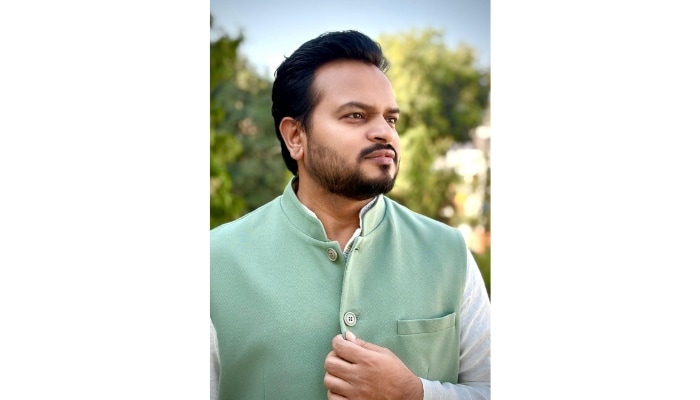Indian philosopher Devrishi, has introduced Sonic Philosophy—a Vedic-scientific approach using sound for mental wellness. Through NYRI and rituals like Naad Yagya, he blends ancient mantras with modern neuroscience to offer India’s spiritual answer to global mental health challenges.
New Delhi [India], May 29: As the world grapples with a rising wave of anxiety, depression, and emotional imbalance, a new wave of hope is emerging—not from pharmaceuticals, but from India’s spiritual heritage. Indian philosopher, mystic, and spiritual researcher Devrishi has formally introduced Sonic Philosophy, or Dhvani Darshan—a Vedic-scientific framework that redefines sound as a tool for consciousness and healing.
Devrishi, widely recognized as the founder of Indian Sonic Philosophy, has spent years researching how sacred sound, mantras, and vibrational patterns impact the human mind, brainwave activity, and emotional coherence. Rooted in the ancient principle of Nāda Brahma—the idea that the universe originates from sound—his system combines Bhakti (devotion), Nāda (sound), and Jñāna (knowledge) into a cohesive approach to wellness.
“Sonic Philosophy is not a revival of the past,” says Devrishi. “It is the rebirth of sound as consciousness—a force that can be measured, experienced, and practiced for healing.”
Before his philosophical journey, Devrishi was known as Rishikesh Pandey, a composer and filmmaker in India’s entertainment industry. His civic-themed songs under Swachh Bharat Abhiyan became cultural icons—particularly in Indore, where his compositions were affectionately called “Morning Alarm of Indore.” Despite commercial success, he left the industry in search of deeper truths, adopting the name Devrishi to mark his dharmic transformation.

To bring scientific validation to his work, Devrishi founded the Nada Yoga Research Institute (NYRI) under the Sanatan Wisdom Foundation. The institute uses EEG, HRV, and biofield imaging to analyze the physiological and psychological effects of mantra chanting. Preliminary studies indicate significant benefits in reducing stress and improving mental clarity.
One of NYRI’s most unique contributions is Naad Yagya—an annual Vedic sonic ritual where trained Brahmins chant mantras in an acoustically structured space, while scientific instruments record their effects in real-time. This has resulted in the creation of the world’s first bio-acoustic database on mantra therapy.
To translate his philosophy into daily life, Devrishi launched Devoti Music, a devotional label producing mantra-based soundscapes for healing and reflection. He also leads Svaryam, a sound-wellness platform that integrates digital therapies, personalized mantra journeys, and immersive retreats.
Importantly, Devrishi emphasizes that his work is not religious evangelism, but a civilizational model of mental wellness based on Indian metaphysics. As Indian institutions like the Ministry of AYUSH and AIIMS begin to explore traditional healing sciences more seriously, Sonic Philosophy is gaining traction among researchers, corporates, and wellness professionals alike.
By redefining sound as a bridge between science and spirit, Devrishi has brought India’s ancient dhwani parampara back into public consciousness. As the first Indian philosopher to systematically present Sonic Philosophy as a scientific and spiritual framework, his contribution is not merely academic—it is visionary.
In a world searching for new paths to peace, Sonic Philosophy may well become India’s sound gift to global healing.


